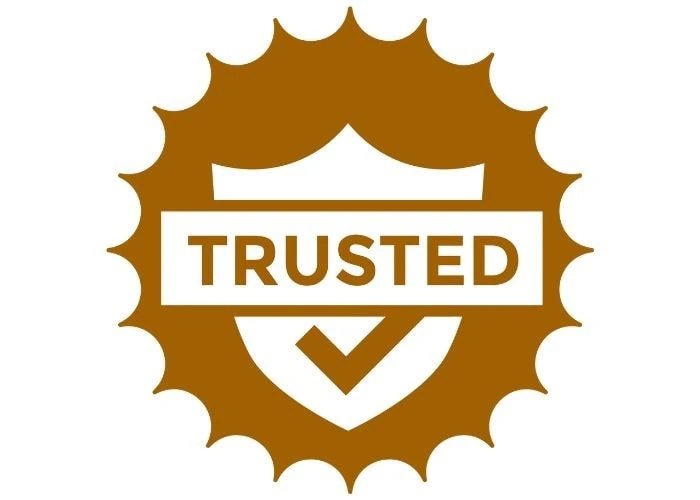First, let’s see what trust flow means for websites – Trust flow is a measure of the quality and trustworthiness of a website, based on the number and quality of inbound links to the site.

A high trust flow indicates that the site is trusted by many other websites, while a low trust flow indicates that the site is not as trusted.
Trust flow is vastly important because it is one of the factors that search engines use to determine the quality of a website and whether or not it should be ranked highly in search results.
Simply put, inbound links from high-quality, trusted websites carry more weight than inbound links from low-quality or untrusted websites. Thus, a site with a high trust flow is more likely to rank higher in search results than a site with a low trust flow.
There are many factors that can affect trust flow beside the number and quality of inbound links. What’s in the game is also the age of the website, the popularity of the website, and more.
Trust flow is not an exact science, but it is generally considered a good indicator of the overall quality and trustworthiness of a website.
What Is SEO?
SEO is a short form for “Search engine optimization”. It is a long-term marketing strategy employed in order to improve a website’s visibility and organic search results in google and other global search engines.
There are two types of SEO: Off-page SEO & On-page SEO. Techniques used to improve ranking on SERPs fall under Off-page SEO while tactics used to improve website content to make it more search engine friendly comes under On-page SEO.
Off-Page SEO: These are the techniques that we use to promote our website so that it can rank higher in SERPs. Promoting a website via social media, building backlinks, directories, etc. comes under Off-page SEO.
On-Page SEO: On-page SEO is those tactics that we use to optimize our website’s individual pages so that they rank higher in SERPs. Some of the techniques used in on-page SEO are keyword research, title tags, meta tags, etc. Digital marketers also use on-page optimization tools to make sure that they create content that provides exactly what their audience is looking for.
SEO is important because it helps your website to rank higher in the search engine results pages (SERPs). This is important because most people who use search engines (like Google) only look at the first page or two of results, so if your website isn’t on one of those pages, you are missing out on a lot of potential traffic.
SEO is also important because it can help to improve your website’s click-through rate (CTR). This is the number of times people who see your listing in the SERPs click on your link. A higher CTR means more traffic to your website, and that can lead to more sales or leads.
SEO can also help to improve your brand’s visibility and awareness.
How to Increase Your Trust Flow with SEO?
As we all know, SEO is a hot topic in the online marketing world, and trust flow is one of the most important ranking factors in Google’s search algorithm.
Simply put, trust flow is a measure of the quality and trustworthiness of a website, and it’s something that you need to pay attention to if you want your site to rank well in search engine results pages.
There are a number of ways to improve your website’s trust flow, and in this article, we’ll walk you through some of the most effective methods.
1. Publish high-quality content
One of the best ways to improve your website’s trust flow is to publish high-quality, informative content. Google wants to rank websites that offer visitors valuable information, so if you can provide that, you’re more likely to see your site’s trust flow improve.
2. Get links from high-quality websites
Another great way to improve your website’s trust flow is to get links from other high-quality websites. Google looks at the quality of websites that link to yours when determining your trust flow, so if you can get links from sites with high trust flows, you’re likely to see your own trust flow improve.
3. Build a strong social media presence
A strong social media presence can also help improve your website’s trust flow. Google takes social signals into account when determining trust flow, so if you have a strong social media presence, it’s likely that your trust flow will improve.
4. Make sure your website is mobile-friendly
In today’s world, it’s absolutely essential to make sure your website is mobile-friendly. Google now uses mobile-friendliness as a ranking factor, so if your website isn’t mobile-friendly, you’re likely to see your trust flow suffer.
5. Pay attention to your website’s design
Your website’s design is also important when it comes to trust flow. Google wants to rank websites that offer a good user experience, and if your website is poorly designed, it’s likely that your trust flow will suffer.
These are just a few of the most effective methods for improving your website’s trust flow. If you can focus on these things, you’re likely to see your site’s ranking improve in Google’s search results.
How Do Backlinks Add Value to Your Trust Flow?
How exactly do backlinks contribute to trust flow? And how many backlinks do you need to make a difference? Let’s take a closer look.
Backlinks are one of the most important factors in determining a website’s trust flow. That’s because backlinks are essentially votes of confidence from other websites. When another website links to yours, it’s effectively saying that they trust your site and think it’s worth visiting.
The more backlinks you have, the more votes of confidence you have, and the higher your trust flow will be. Of course, not all backlinks are created equal. A link from a high-quality website will carry more weight than a link from a low-quality site so it’s important to focus on getting links from websites that are relevant to yours and already have a good reputation.
Generally speaking, you’ll need at least a few dozen high-quality backlinks to see a significant boost in your trust flow. But the more links you have, the better.
If you’re serious about increasing your trust flow, then start actively working on building backlinks from high-quality websites.







0 Comments